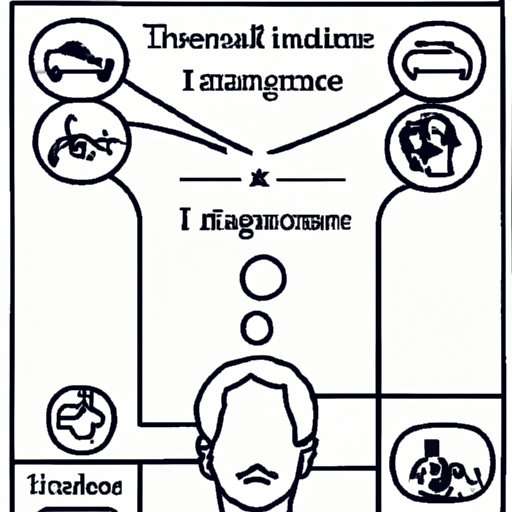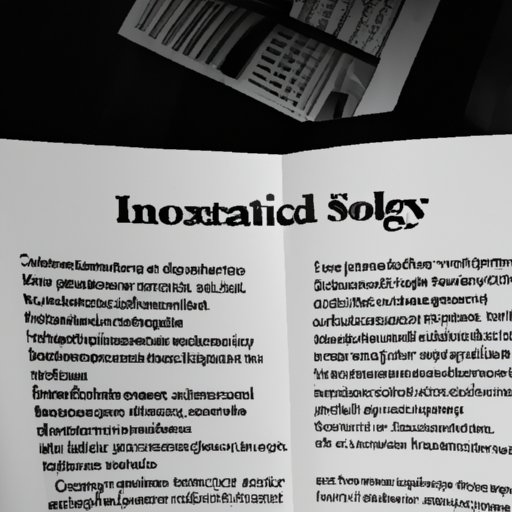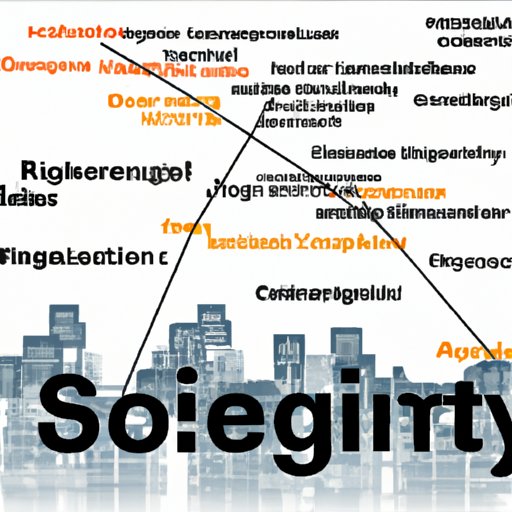Introduction
The sociological imagination is an influential concept developed by American sociologist C. Wright Mills in 1959. It is defined as “the vivid awareness of the relationship between experience and the wider society” and is used to understand how personal issues are connected to broader social structures. This concept has been widely discussed in sociology and has had a significant influence on our understanding of society.
Exploring the Concept of the Sociological Imagination
The sociological imagination is a way of looking at the world that takes into account the social, historical, and cultural context of individual experience. It helps us to think critically about the ways in which our lives are shaped by larger social forces. By recognizing the interconnectedness of our individual experiences and the wider society, we can gain a deeper understanding of the world around us.
The sociological imagination differs from other forms of understanding in that it does not focus solely on individual behavior or isolated events, but rather on the relationships between personal issues and larger social structures. For example, it can be used to examine how poverty affects educational opportunities or how racism impacts access to healthcare. This approach allows us to see how our individual experiences are linked to larger societal issues.

Unpacking the Idea of the Sociological Imagination
In order to gain a better understanding of the sociological imagination, it is important to consider its various components. A key element of the sociological imagination is the idea of “seeing things in their historical context.” This means that we must look beyond the present moment and consider how our current situation has been shaped by past events. Additionally, the sociological imagination involves recognizing the role of power and privilege in society—not only in terms of economic resources, but also in terms of access to knowledge and information.
Another important component of the sociological imagination is the concept of “structural determinism.” This refers to the idea that our lives are shaped by larger social forces such as political systems, economic structures, and cultural norms. Finally, the sociological imagination requires us to recognize the importance of our own agency—our ability to make choices and take action in response to the social structures that shape our lives.
A Closer Look at the Sociological Imagination
The sociological imagination has had a profound influence on our understanding of society. It has been used to analyze a variety of social phenomena, from poverty and inequality to gender and racial discrimination. For example, sociologists have used the sociological imagination to examine the ways in which poverty can limit educational opportunities, or how racism can lead to disparities in access to healthcare.
The sociological imagination has also been used to study the impact of social movements. It has helped us to understand how certain groups have been able to challenge existing power structures and bring about social change. In addition, the sociological imagination has been used to examine the ways in which popular culture shapes our understanding of the world.

Examining the Role of the Sociological Imagination in Our Lives
The sociological imagination can be a powerful tool for understanding our lives and our world. It can help us to analyze the underlying causes of social problems and to think critically about the way our society operates. Additionally, the sociological imagination can be used to develop creative solutions to social issues and to identify opportunities for positive change.
We can use the sociological imagination in our everyday lives by looking for patterns and connections between our individual experiences and larger social structures. For example, we can consider how our education system may be contributing to inequality or how our media consumption may be influencing our attitudes towards certain issues. By examining these connections, we can gain a better understanding of our society and our place within it.

Investigating the Power of the Sociological Imagination
The sociological imagination has the power to shape our worldview and our actions. It can help us to recognize the ways in which our lives are influenced by larger social forces and to understand the implications of our choices. Additionally, the sociological imagination can be used to challenge existing power structures and to create a more equitable and just society.
The implications of the sociological imagination for our future are vast. As we continue to grapple with the challenges of the 21st century, the ability to think critically and to understand the underlying causes of social issues will be essential. The sociological imagination can provide us with the tools to do this, and can help us create a better world for ourselves and future generations.
Conclusion
The sociological imagination is a powerful concept that has had a significant impact on our understanding of society. It encourages us to think critically about the ways in which our individual experiences are shaped by larger social forces, and to recognize the importance of our own agency in creating positive change. By exploring the various components of the sociological imagination, we can gain a deeper understanding of our world and the role we can play in it.
The sociological imagination has the potential to transform our lives and our society. It can help us to recognize the ways in which our individual experiences are connected to larger social structures and to identify opportunities for positive change. By understanding the power of the sociological imagination, we can strive to create a more equitable and just world for ourselves and future generations.
(Note: Is this article not meeting your expectations? Do you have knowledge or insights to share? Unlock new opportunities and expand your reach by joining our authors team. Click Registration to join us and share your expertise with our readers.)
